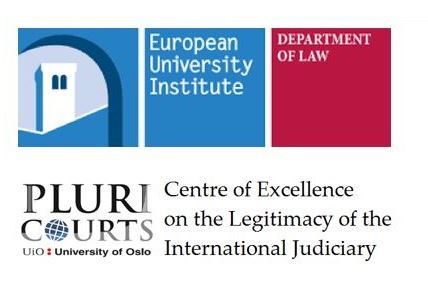4/15/2022
Eui Law Login
You’ve heard it before: you can’t manage what you don’t measure. That’s why EPA created ENERGY STAR Portfolio Manager®, an online tool you can use to measure and track energy and water consumption, as well as greenhouse gas emissions. Use it to benchmark the performance of one building or a.

At the beginning of the 1990s, the concept of “European integration” could still be said to be fairly unambiguous. Nowadays, it has become plural and complex almost to the point of unintelligibility. This is due, of course, to the internal differentiation of EU membership, with several Member States pulling out of key integrative projects such as establishing an area without frontiers, the “Schengen” area, and a common currency. But this is also due to the differentiated extension of key integrative projects to European non-EU countries – Schengen is again a case in point. Such processes of “integration without membership”, the focus of the present publication, are acquiring an ever-growing topicality both in the political arena and in academia. International relations between the EU and its neighbouring countries are crucial for both, and their development through new agreements features prominently on the continent’s political agenda. Over and above this aspect, the dissemination of EU values and standards beyond the Union’s borders raises a whole host of theoretical and methodological questions, unsettling in some cases traditional conceptions of the autonomy and separation of national legal orders. This publication brings together the papers presented at the Integration without EU Membership workshop held in May 2008 at the EUI (Max Weber Programme and Department of Law). It aims to compare different models and experiences of integration between the EU, on the one hand, and those European countries that do not currently have an accession perspective on the other hand. In delimiting the geographical scope of the inquiry, so as to scale it down to manageable proportions, the guiding principles have been to include both the “Eastern” and “Western” neighbours of the EU, and to examine both structured frameworks of cooperation, such as the European Neighbourhood Policy and the European Economic Area, and bilateral relations developing on a more ad hoc basis. These principles are reflected in the arrangement of the papers, which consider in turn the positions of Ukraine, Russia, Norway, and Switzerland in European integration – current standing, perspectives for evolution, consequences in terms of the EU-ization of their respective legal orders1. These subjects are examined from several perspectives. We had the privilege of receiving contributions from leading practitioners and scholars from the countries concerned, from EU highranking officials, from prominent specialists in EU external relations law, and from young and talented researchers. We wish to thank them all here for their invaluable insights. We are moreover deeply indebted to Marise Cremona (EUI, Law Department, EUI) for her inspiring advice and encouragement, as well as to Ramon Marimon, Karin Tilmans, Lotte Holm, Alyson Price and Susan Garvin (Max Weber Programme, EUI) for their unflinching support throughout this project. A word is perhaps needed on the propriety and usefulness of the research concept embodied in this publication. Does it make sense to compare the integration models and experiences of countries as different as Norway, Russia, Switzerland, and Ukraine? Needless to say, this list of four evokes a staggering diversity of political, social, cultural, and economic conditions, and at least as great a diversity of approaches to European integration. Still, we would argue that such diversity only makes comparisons more meaningful. Indeed, while the particularities and idiosyncratic elements of each “model” of integration are fully displayed in the present volume, common themes and preoccupations run through the pages of every contribution: the difficulty in conceptualizing the finalité and essence of integration, which is evident in the EU today but which is greatly amplified for non-EU countries; the asymmetries and tradeoffs between integration and autonomy that are inherent in any attempt to participate in European integration from outside; the alteration of deeply seated legal concepts, and concepts about the law, that are already observable in the most integrated of the non-EU countries concerned. These issues are not transient or coincidental: they are inextricably bound up with the integration of non-EU countries in the EU project. By publishing this collection, we make no claim to have dealt with them in an exhaustive, still less in a definitive manner. Our ambition is more modest: to highlight the relevance of these themes, to place them more firmly on the scientific agenda, and to provide a stimulating basis for future research and reflection.
Eui Law Login Page


Eui Law Login Email


Eui Law Login Account
- Library Open Science Team European University Institute Badia Fiesolana - Via dei Roccettini 9 I-50014 San Domenico di Fiesole (FI) Italy E-mail: cadmus@eui.eu - Phone: +39 055 4685 368.
- European University Institute, Firenze, Italy. 65,647 likes 580 talking about this 6,767 were here. The EUI is an international postgraduate teaching and research institute in the social sciences.
- Badia Fiesolana - Via dei Roccettini 9, I-50014 San Domenico di Fiesole (FI) - Italy ×.
- The EUI is currently using an email service hosted by Microsoft, called Office 365. The email service provides the following: 100 Gigabytes of email storage per account/user; personal and shared calendar(s) accessible worldwide via your email client or webmail; independent from EUI network and ICT infrastucture (no downtime during EUI ICT.